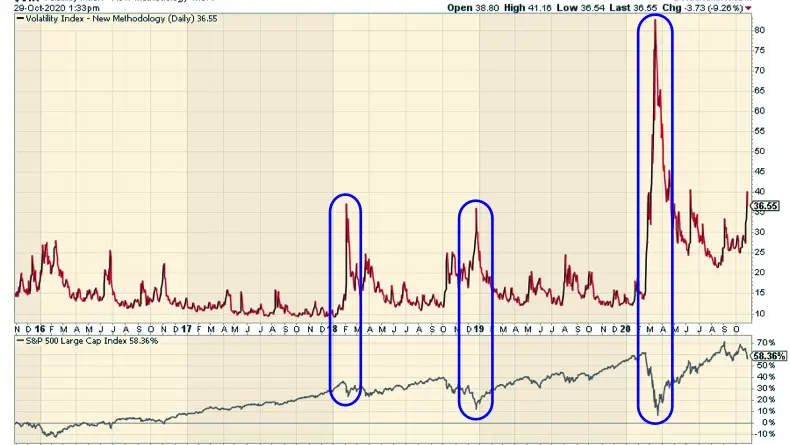How To Implement VIX Strategy To Generate Profits
The logic behind our research is actually pretty straightforward when you think about it. It’s a spin on the traditional buy low, sell high strategy and indicates that investors should be buying equities (or, conceivably, other risk assets) when volatility levels are excessively high and sell when volatility is excessively low.
Why? Spikes in the are almost always associated with sharp and severe downturns in the markets. This can best be explained in the paper’s conclusion.
“While momentum is often touted as the ideal anomaly to take advantage of using sectors to express an active bet on continued performance, we find that an approach which waits for momentum to crash with a VIX spike allows for an ideal set-up to buy low and sell high when investor overreactions take place.”
As the VIX rises, stock prices tend to fall and investors, in general, tend to overreact. These types of scenarios create opportunities for smart market watchers to exploit and generate alpha.
The last three major VIX spikes all created buying opportunities that preceded sharp rebounds in equity prices.
The spikes highlighted are the most obvious examples, but you can see a similar relationship between smaller scale VIX spikes and stock prices at many points over the past five years. This was our general thesis. By adding risk to your portfolio when volatility levels were high, investors would essentially be buying stocks “on sale”. Positioning your bets in the right sectors…
